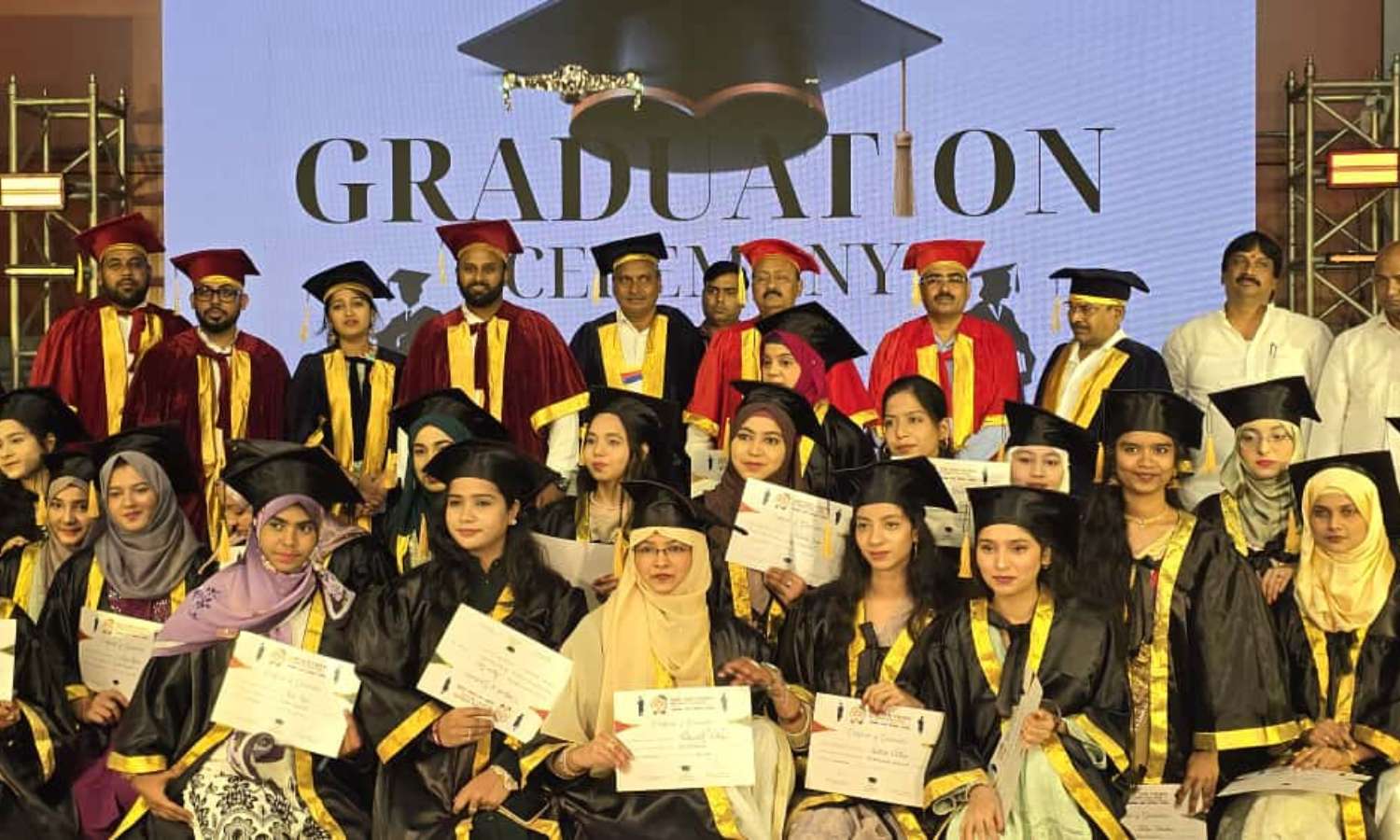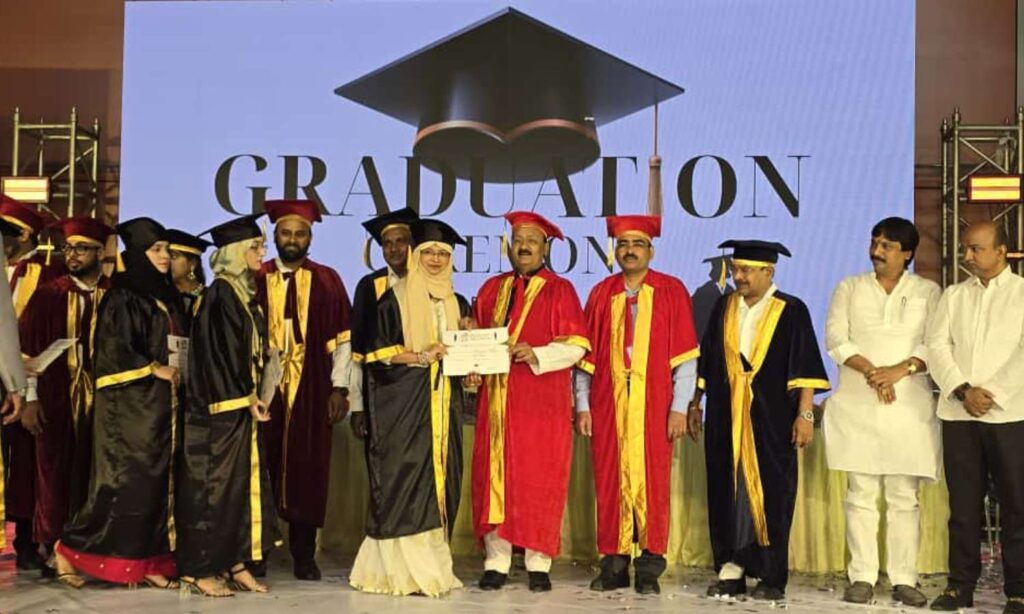Hyderabad, September 23: Advisor to the Telangana Government and senior Congress leader Mohammed Ali Shabbir on Tuesday said that successive Congress governments had ushered in an educational revolution among Muslims, particularly Muslim women, through far-reaching policies like 4% reservation, fee reimbursement, scholarships, and the sanction of new medical, engineering and other professional colleges.
He was addressing the Graduation Day ceremony of Sri Sai Vikas Degree College in Hyderabad as the Chief Guest.
Shabbir Ali said that the credit for today’s progress of Muslim women in education belonged to the Congress Party, former Chief Minister Dr. Y. S. Rajasekhara Reddy, and to his own consistent efforts. He recalled that earlier, most Muslim girls would discontinue their studies after the 7th standard, and very few even reached SSC or Intermediate. “What we see today is a silent revolution that began nearly two decades ago. The change became visible when the first batch of nearly 100 Muslim girls passed out of the VRK Medical College for Women. That was the starting point of transformation, and today we are witnessing Muslim women reaching higher levels of education in unprecedented numbers,” he said.
He reminded the audience that the introduction of 4% Muslim reservation in 2004 by the Congress Government marked the beginning of a historic new chapter. Between 2004 and 2009, while serving as a minister in Dr. Y. S. Rajasekhara Reddy’s cabinet, Shabbir Ali played a pivotal role in securing sanction for six new medical colleges – Shadan Medical College, VRK Women’s Medical College (the first and only women’s medical college in Asia), Fatima Medical College in Kadapa, Nimrah Medical College in Vijayawada, Ayaan Medical College, and Shaaz Medical College. With several batches of students completing their education from these institutions, the transformation in the community became evident, signalling the dawn of a new educational revolution among Muslims.

The results of these reforms are clearly reflected in the MBBS admissions for 2024-25. Out of 65 medical colleges with a total of 8,965 seats in Telangana, as many as 1,226 Muslim students secured admission, including 485 boys and 741 girls. Of these, 638 students gained admission under the BC-E quota alone. Strikingly, Muslim girls outnumbered boys in both the free and management categories – 508 girls against 302 boys in the free quota, and 233 girls compared to 183 boys in management seats. Shabbir Ali noted that these figures stand as undeniable proof that the fight for reservation has matured into a genuine movement of empowerment for Muslim women.
Giving concrete examples, Shabbir Ali narrated how daughters of auto-rickshaw drivers and daily wage workers had become doctors, engineers, and professionals because of reservation, fee reimbursement, and scholarships. “I often say I planted a seed in 2004. That seed has now grown into a fruit-bearing tree. It has taken 20 years, but today we can see the results with our own eyes,” he said.
He stressed that educational empowerment among Muslim women was not accidental but the result of deliberate Congress policies. He said the creation of the Minority Welfare Department, the introduction of scholarships and hostels, and a strong push for professional education changed the destiny of thousands of families. He added that the educational revolution is more visible in southern states like Telangana, Andhra Pradesh, Karnataka, Kerala and Tamil Nadu, while Muslim women in north India continue to face severe backwardness due to lack of such supportive policies.
Shabbir Ali said that society must also change its thought process. “When girls are showing the path with their commitment and hard work, it is time for families and communities to give them full support. The Congress Party has always believed in social justice and inclusive growth. The success stories of Muslim women students today are proof that the right policies can transform entire generations,” he said.
The Government Advisor called upon students to treat their education as a tool of empowerment and to remember that it was the struggles of previous generations that opened the doors for today’s opportunities. “This is the real revolution we dreamt of when we fought for reservation in 2004. And today, as we see these graduates step forward, we can say with pride that our struggle was worth it,” he said. (eom)
